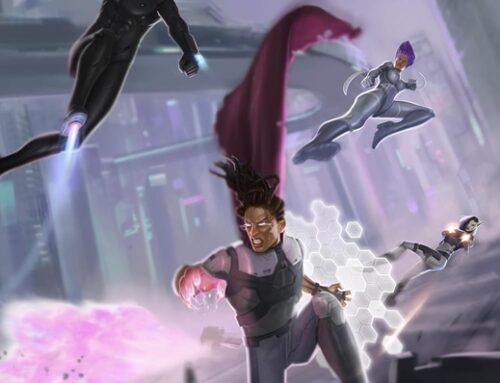 Circus Planetaria is a sweeping new novel from Robert Tyler, a disturbingly relatable tale of a dystopian future on Earth where information is the most important resource. Playing on themes of personal alienation, societal mistrust, governmental corruption, and the secrets we may not want to know, this is a novel tackling big ideas, but doing so through a narrow lens of fascinating characters.
Circus Planetaria is a sweeping new novel from Robert Tyler, a disturbingly relatable tale of a dystopian future on Earth where information is the most important resource. Playing on themes of personal alienation, societal mistrust, governmental corruption, and the secrets we may not want to know, this is a novel tackling big ideas, but doing so through a narrow lens of fascinating characters.
Some of those key characters are introduced from the very start, through compelling vignettes that tell a reader exactly what kind of reading experience they’re about to have: immersive, nuanced and patient. We meet Nicolas Nesbitt, an unassuming scientist who can barely approach a woman for a coffee, let alone team up with Global Awareness in Action, the faceless group of eco-terrorists who are doing all they can to deliver the truth to the people. He is an everyman hero – an unsuspecting protagonist that comes across as honest and authentic, but also brilliant in his own way. Gary Saar is the wild card genius whose job of solving unsolvable puzzles for the Global Information Bureau pits him against the power of the people. The most cerebral of the characters, seeing the world through Gary’s eyes during his sections as narrator displays the cognitive power and linguistic muscle of this author.
As these two main figures spiral inevitably towards one another, both men’s morality and minds are tested, a struggle that is explicated in Tyler’s rich prose. Being in the minds of every character can sometimes reveal too much, but their inner monologues are amusing and elaborate playgrounds. The scientific realm is also clearly vital to the author, considering much of the writing is steeped in scientific metaphors and language commonly seen in dusty textbooks, yet the writing rarely becomes dry. If you enjoy a good turn of phrase, a la Tom Robbins, certain lines in this book will have you smirking hard.
While all of the narration is heavy with intent and meaning, the slight variations between different narrative times, settings and perspectives kept the flow of the novel engaging and dynamic. The prose is also peppered with memorable witticisms and casual asides on every page: “The SUV is suddenly seen by Nicolas as the flagship ill of the world and also possibly a singular explanation for the Fermi Paradox” and “For her, astronomy is at best an interesting motif for a child’s room, and he finds her perfectly arranged house decor to be more sterile and vacuous than any patch of black sky he had seen through a telescope.” The language is both informative and amusing, showing an attention to detail, and a constant drive by the author to elucidate visceral feelings from the reader. It can be a subtle skill, and can lean into being overly verbose for many writers, but Tyler chooses his words with wisdom.
The strength of the prose doesn’t end with narration, as the character interactions are also fascinating, meaningful, and deep. The plot gradually speeds up, though the language never stumbles, and this thriller peaks at all the right times. Perhaps most importantly, the novel shines a bright light on the current crises facing our world. While the GIB and GAIA are fictional groups, they have obvious parallels and avatars in every reader’s reality, making the story instantly immersive, as though we are reading about the very near future, or even the unknown secrets of the present.
A linguistic pursuit of truth and connection, Tyler demonstrates masterful storytelling skills and a singular way with words to deliver a thought-provoking journey in Circus Planetaria.


















Leave A Comment